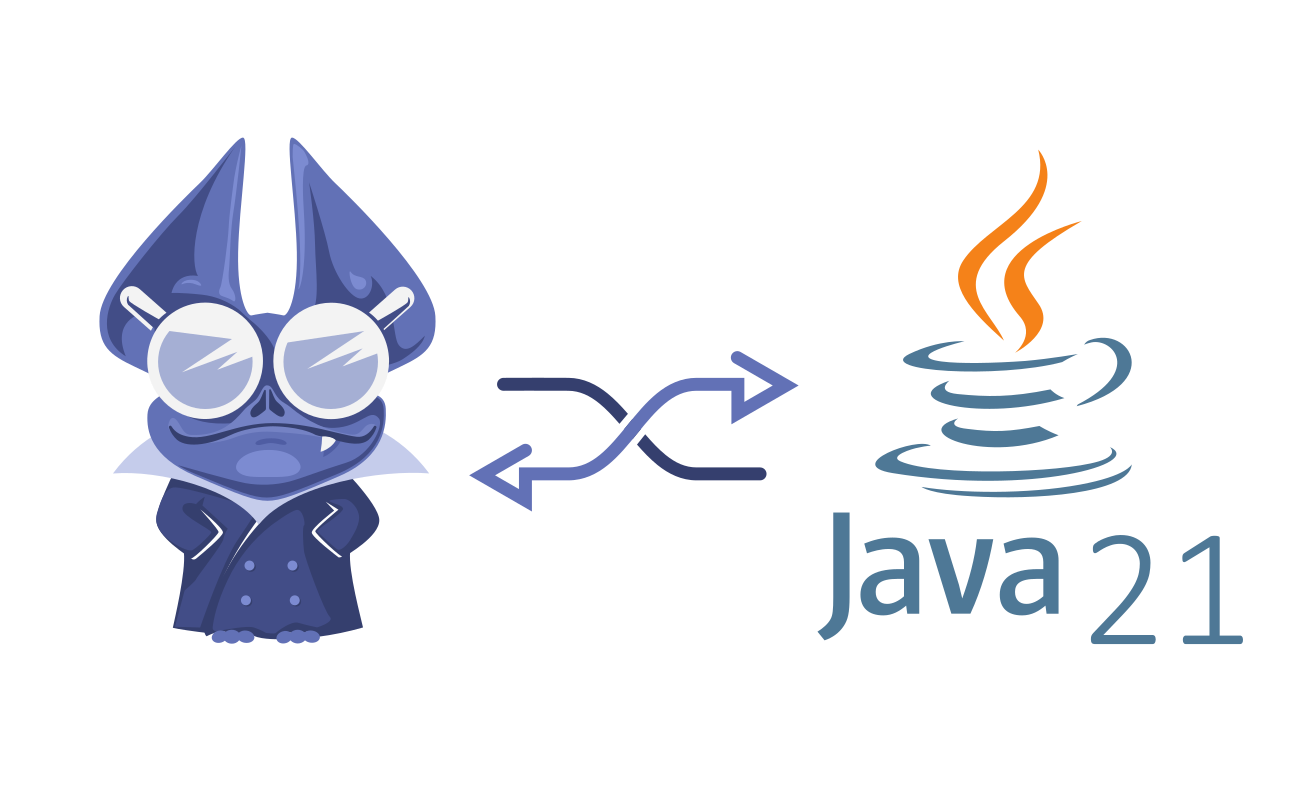- cross-posted to:
- java
- experienced_devs
- cross-posted to:
- java
- experienced_devs
In this article, we’ll debunk the notion that Java is a relic of the past and showcase the language’s modern features, thriving ecosystem, and unwavering presence in enterprise and open-source communities.



As a software engineer, from experience: yes and no.
The language itself is getting a lot of cool, new, modern features. However, I’ve never had a job where we were using the latest Java version. The most up-to-date JDK I’ve used in work was two major releases back, and most of the time it’s older than that.
I’m normally working in Kotlin when coding because I do Android development. I’ve had the misfortune of taking up some slack in a greenfield backend project and holy God is it miserable.
Everything is harder to read, every basic data model is 200 lines of getters and setters, multithreading is painful, basic transformers require separate class declarations. And that doesn’t even touch on the horrific experience of using Jackson to handle json serialization.
I felt the same way coming back to Java from Kotlin. The more streamlined syntax of Kotlin is so much more comfortable to read and write. That being said, I never had an issue with using Jackson for JSON serialization in Java. I’m curious what issues you have encountered and if you have any alternative suggestions that are nicer to use in Java?
I’m not sure there’s much that is better or worse than Jackson. When I worked exclusively in Java I was always using GSON and did not remember having so many hoops to jump through. Could just be my bad memory though.
I just feel like when I’m doing Java work I spend 90% of my time on useless boilerplate.
Lombok will shrink the 200 lines of getters and setters to one or two. It has its own pitfalls of course, but IMO it’s definitely worth it.
Corporate standards.
I’m pushing for no half measures: it’s Kotlin or bust.
Definitely agree that Kotlin is so much better than Java + Lombok, but it’ll take a lot of time for all the existing Java projects or migrate to Kotlin or reach EOL. In the meantime, it’s hard to avoid the occasional Java project…
Sure but you can also just drop kotlin into any Java codebase. It’s a single line maven import and the entire company already uses Intellij
Oh yeah - the seamless Java/kotlin interop is pretty slick, though there are some pitfalls - nullity is one of them. Kotlin treats it explicitly, but when it’s talking to Java, it’s forced to treat it ambiguously unless you wrap stuff in
Optional. And then even if you do, some Java lib that you need to plug into your project might not do that, so you’ve got to be careful about managing the interactions between their interfaces in some situations. And then there’s the unfortunate divergence that’s started to occur as newer versions of Java have brought certain features that were first available in Kotlin into Java, but the patterns and interfaces often differ subtly, so you have to worry about that too, especially with less experienced engineers on the team.Don’t get me wrong - it’s great, and I’ve enjoyed working with it, but if you’re doing an incremental migration, make sure you test the ever-loving shit out of it.
Source: I did an incremental Java -> Kotlin migration on a huge project a couple jobs ago
Yeah it can be slightly hairy because Java does a terrible job with nullability. I’ve also done an incremental migration of an android codebase to Kotlin.
Personally I think being forced to declare the nullability of a field is something backend developers should do more of. It helps eliminate some of the foot guns that otherwise get built into the code base.
I’m a bit of a kotlin fanboy though, I’ll admit.
I 100% agree that explicit nullity is categorically better, and the vast majority of the entire software engineering field does too. The problem lies in the fact that explicit nullity was added in 2014 with Java 8, nearly two decades after Java 1 shipped in 1996. That’s a hell of a lot of technical inertia to overcome.
I’m curious to hear about yours and others’ experiences with containerizing Java applications in such environments. I used to work in a place that traditionally had such restrictions on JDK versions, but after the internal IT environment moved towards running applications within containers, either on Kubernetes or on public cloud platforms’ container runtimes, that restriction became unnecessary since the application would be shipped to production alongside its compatible JDK.
While there were still restrictions on exactly what JDK you could run for other reasons, such as security/stability, common developer experience, etc, it at least allowed teams to immediately adopt the newest LTS release (17 at the time I left) with little restriction.
These types of threads always has developers stuck with old versions of the jdk. Its amazing to me that many IT departments allow unsupported software on their network.
Allow is a strong word. For many companies, development represents dollars. IT and Security are important, but in these companies if the development group wants old tech they get old tech.